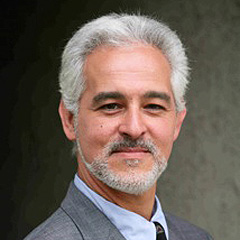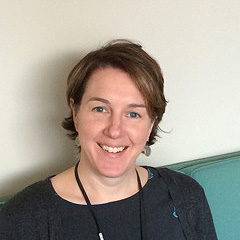William R. McFarlane, MD is the founder and owner of the PIER Training Institute, which grew out of the Portland Identification and Early Referral (PIER) Program of Portland, Maine. The PIER Program is one of the first early psychosis programs in the United States, and a forerunner in the advancements of Family Psychoeducation-informed multidisciplinary treatment that preceded current models of Coordinated Specialty Care (CSC). His areas of research and practice include Family Psychoeducation and other psychosocial interventions for severe psychiatric disorders, as well as pioneering efforts in the area of early detection and intervention of psychotic disorders in youth and young adults. Dr. McFarlane has served as the Chief of the Department of Psychiatry and the Director of the Center for Psychiatric Research at Maine Medical Center in Portland, Maine. He is a Professor at Tufts University School of Medicine. Dr. McFarlane has taught family therapy and the psychobiology of mental illnesses to medical students and residents at Maine Medical Center in partnership with the Tufts University School of Medicine. Dr. McFarlane received his medical degree from Columbia University, College of Physicians and Surgeons and completed his residency and fellowship at Albert Einstein College of Medicine. Dr. McFarlane has been involved in the publication of over 80 articles, chapters and books on the topics of Multifamily Group intervention and early identification and treatment of psychosis, and continues to be actively involved with the Leadership team of the PIER Training Institute.

William R. McFarlane, MD
Director
PIER Training Institute Leadership Team:
Associate Director: Alex Kopelowicz, MD
He has received many awards and honors for his work – among others, the Exemplary Psychiatrist Award from the National Alliance for the Mentally Ill (NAMI), the Simon Bolivar Award from the American Psychiatric Association where he is also a Distinguished Fellow.

Alexander Kopelowicz
MD
Training Director: Rebecca Jaynes, LCPC
Rebecca specializes in Community Outreach and Family Psychoeducation/Multifamily Groups, and is additionally trained and certified in CBT for psychosis, leading a train-the-trainer effort to expand CBTp services in Maine. Rebecca has a MA in Clinical Psychology from the University of Colorado-Denver, where she received an award as Outstanding Graduate Student, and a BA in psychology from Boston University, where she attained Phi Beta Kappa status. She holds additional certifications in holistic mental health counseling and CBT for psychosis.
When not working, Rebecca enjoys the outdoors and time with family: “outdoor adventures fuel me, yoga and mindfulness ground me, parenting humbles me, and my clients inspire me.”

Rebecca Jaynes,
LCPC
“Reducing stigma is about engaging with communities to share stories of growth and new-found meaning through early intervention. “Rebecca Jaynes, LCPC
- 2020: Author: Jaynes (2020), “Our Mutual Metamorphosis,” Psychosis, 12(2), pages 195-197.
- 2019: Co-Author: Lynch, S, Jaynes, R, Nnguany, N. “Engaging Families and Individuals in Care” ch 6, p 79-95 in Intervening Early in Psychosis: A Team Approach (2019), APA Publishing, Washington DC, eds: Hardy, Ballon, Noordsy, Adelsheim.
- 2019: Keynote Panel Presenter: ISPS-US Family Panel Presentation—ISPS Annual Conference, New Haven, CT. Topic: Using MultiFamily Groups as a tool for social change.
- 2017: Co-Author: McFarlane, W & Jaynes, R. Educating Communities to Identify and Engage Youth in the Early Phases of an Initial Psychosis (nasmhpd.org) Outreach Technical Assistance Manual for SAMHSA (available online).
- 2016: Presenter: ISPS International Conference, Liverpool, UK “Know IT Own IT Harness IT” self-edited collection of videos of young people living well with psychosis and their journeys to recovery
Assessment Training Director: Barbara Walsh, PhD
She received her PhD in Counselling Psychology from University College London and practiced as a family therapist for many years prior to devoting herself to research in the field of early psychosis. She has co-authored numerous peer reviewed articles on schizophrenia.

Barbara C. Walsh
PhD
Fidelity/Implementation Director: Sarah Lynch, LCSW
Sarah is most excited by the paradigm shift in the mental health field to a more proactive, hopeful, and individualized model of treatment. She is inspired by the influence graduate parents and participants have in engaging new participants and educating our community through their stories, advocacy and ideas. The roles of Peer Support and Family Partners offer new possibilities for reducing barriers and stigma. Ms. Lynch received her Master Degree in Social Work at Columbia University and her Bachelor of Arts at Connecticut College.
When not working, Sarah enjoys spending time outdoors with her family – she loves riding her bike, swimming, and singing.

Sarah Lynch
LCSW
“I am inspired by young people and families finding community and healing in one another. Multifamily Groups offer mutual support, more perspectives, education, and social change for peers, families, supports and providers alike.”Sarah Lynch, LCSW
- Lynch S, Jaynes, R, Nyguany, N, Engaging Individuals and Families in Treatment. In: Intervening Early in Psychosis: A Team Approach, edited by K.V. Hardy, J.S. Ballon, D.L. Noordsy, S. Adelsheim. Washington DC: American Psychiatric Publishing, 2019.
- Lynch, S., Mason, N., McFarlane, W.R.. (2018). Family Psychoeducation in the Treatment of Mental Illness: Historical Context, Current Practice and Future Directions. In: Rosenberg, J. & Rosenberg, S., Eds Community Mental Health: Challenges for the 21stCentury 3rd edition). New York: Routledge.
- McFarlane, W.R., Susser, E., McCleary, R., Verdi, M., Lynch, S., Williams, D., et al. Reduction in Incidence of Hospitalizations for Psychotic Episodes Through Early Identification and Intervention. Psychiatric Services in Advance [serial on the Internet]. 2014.
- Lynch S., McFarlane, W.R., Joly, B., Adelsheim, S., Auther, A., Cornblatt, B.A., Migliorati, M., Ragland, J.D., Sale, T., Spring, E., Calkins, R., Carter, C.S., Jaynes, R., Taylor, S.F., Downing D. Early detection, intervention and prevention of psychosis program: Community outreach and early identification at six US sites. Psychiatric Services (in advance of print) January 2016.
- McFarlane, W.R., Cook, W.L., Downing, D., Ruff, A., Lynch, S., Adelsheim, S., Calkins, R., Carter, C.S., Cornblatt, B. (2012). Early Detection, Intervention, and Prevention of Psychosis Program: Rationale, Design, and Sample Description. Adolescent Psychiatry, 2, 112-124. d their journeys to recovery
- McFarlane, W.R., Lynch, S., Melton, R. (2012). Family Psychoeducation in Clinical High Risk and First-Episode Psychosis. Adolescent Psychiatry, 2, 182-194.
- Migliorati, M., Salvador, M., Spring-Nichols, E., Lynch, S., Sale, T., Adelsheim, S. (2012). In the First Person: A Window into the Experience of Early Psychosis and Recovery. Adolescent Psychiatry, 2, 146-152.
- Owens, E. and Lynch, S. Multifamily Group Psychoeducation: Evidence-based practice with a multidisciplinary approach. Advance for Nurses, August 29, 2005 – Vol. 7, Issue 19, Page 41.
